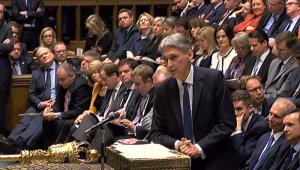Dame Susan Rice, chair of the Scottish Fiscal Commission, said a recent request for data sent to the department had been treated as a freedom of information request from a member of the public instead of as a formal request from a public body.
“While we received this information just in time for us to be able to examine it, it places us in an uncertain situation with regards to future data requests,” she told members of the Scottish Parliament’s finance and constitution committee.
Understaffed government departments were inundated with requests for information, and where the commission came in the “pecking order” was an issue, she said.
“Our sense is they have more and more work and to do and probably not more people to do it, and they would prefer to take all requests from Scotland from the Scottish Government,” she said.
“We need to have people understand who we are…that we are independent from the Scottish Government and therefore have the right to ask for the data we are asking for, and that needs to be respected,” she said.
“We are a public body in our own right.”
There is currently no agreed way for the commission to obtain data from the DWP, and Dame Susan suggested that an agreement, or memorandum of understanding, was needed to set out formally how the two bodies would work together.
Such an agreement had already been signed with HMRC, with whom “good progress” had been made in developing a relationship, she said.
Dame Susan also answered questions on the commission’s forecast evaluation report, published last week, which showed that income tax raised £0.5bn less than expected north of the border in the tax’s first year under Holyrood control.
Earlier in the session, Michael Russell, cabinet secretary for government business and constitutional relations, said he had “grave cause for concern” over the future of the Sewel Convention – which stipulates that Westminster should not normally legislate on devolved matters without the consent of the Scottish Parliament - after it was “breached” by the UK government in the passage of the EU Withdrawal Act.
“Consent was properly sought; it was denied by this Parliament, but the bill nevertheless proceeded,” he said.
“The Sewel Convention is of no value if the UK government can decide at the end of the process that consent is not after all required. That the UK government considered it was a legitimate approach for the Withdrawal Act should concern all of us.”
But Conservative MSP Adam Tomkins said he did not see the legal and constitutional basis for saying the convention had been breached.
“I don’t understand what in the process of the enactment of the Withdrawal Act was not compliant with both the letter and the spirit of those statutory provisions,” he said.
A DWP spokesperson said the department was in discussions with the SFC to determine its data requirements.
“Once we have an agreed understanding of requirements, we will explore data sharing options,” she said.











